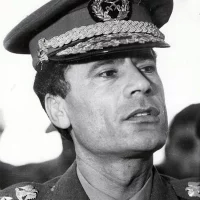Chun Doo-hwan, president of South Korea from 1980 to 1988, seized power in 1979 and crushed many democratization movements during his controversial rule. According to the South Korean constitution, Chun was limited to seven years in power, but as the end of his term approached, it was not clear that he would step down. By late… Read More "Delivering the Mail and Avoiding Martial Law in South Korea, 1987"
“Mr. Gorbachev, Tear down this wall!”
On June 12, 1987, President Ronald Reagan made one of his most famous Cold War speeches at the Berlin Wall. James Alan Williams recalls that day, as well as the Gipper’s famous sense of humor at the lesser known party for the city of Berlin. Williams was interviewed by Ray Ewing beginning in October 2003. Read More "“Mr. Gorbachev, Tear down this wall!”"
The Embassy Beirut Bombing — A Consular Officer’s Perspective
The suicide bombing of the U.S. embassy in Beirut, Lebanon on April 18, 1983 was the deadliest attack on a U.S. diplomatic mission up to that point. The blast killed sixty-three people, seventeen of whom were Americans. The attack is thought of as the beginning of anti-U.S. attacks from Islamist groups. This attack, along with… Read More "The Embassy Beirut Bombing — A Consular Officer’s Perspective"
The late 1980s saw an alarming decline in U.S.-Libyan relations. A plane hijacking and airport attacks in Rome and Vienna in 1985, all linked to Libyan leader Muammar Qaddafi further escalated tensions between the two countries. The U.S. discovered that surface-to-air missiles were being deployed in Libya around the same time. In contravention of international… Read More "Crossing Qaddafi’s Line of Death – April 15, 1986"
Margaret Thatcher, the Iron Lady
One of the most prominent political figures in Cold War history, Margaret Thatcher, led Britain as the only female prime minister from 1979 to 1990. In these brief excerpts from their oral histories, Tom Niles recalls the surprisingly acrimonious meeting between President Reagan and Thatcher over sanctions, which eventually led to Secretary of State Haig’s resignation.… Read More "Margaret Thatcher, the Iron Lady"
Tie a Yellow Ribbon — The Iran Hostage Crisis as Seen from the Home Front
Penelope (Penne) Laingen is the wife of Bruce Laingen, who had served in Germany, Iran, Pakistan, and Afghanistan before being named ambassador to Malta in 1977. He was sent back to Iran to serve as Charge d’Affaires, and had been there for only a few months when the U.S. Embassy was overrun by student protesters. … Read More "Tie a Yellow Ribbon — The Iran Hostage Crisis as Seen from the Home Front"

